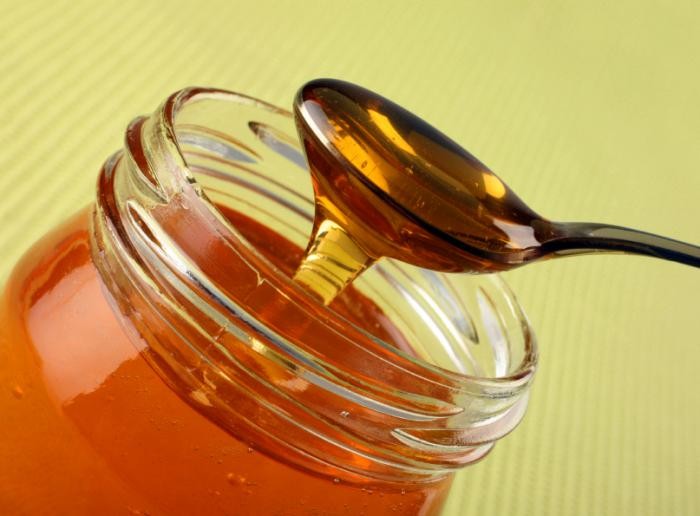Honey, a natural sweetener crafted by bees, has been enjoyed for centuries for its delicious taste and potential health benefits. But How Much Honey A Day is considered safe and beneficial? This guide explores the sweet spot for honey consumption, considering its nutritional value, potential health advantages, and possible risks.
Nutritional Profile of Honey
A single tablespoon (approximately 21 grams) of honey contains:
- Calories: 64
- Carbohydrates: 17.3 grams (all sugar, no fiber)
- Fat: 0 grams
- Protein: 0 grams
Honey provides minimal vitamins and minerals but offers a more gradual rise in blood sugar levels compared to refined sugar, potentially aiding in hunger management. It’s also recognized for its antioxidant, antimicrobial, and soothing properties.
 Spoonful of honey dripping from a jar, showcasing its golden color and viscous texture.
Spoonful of honey dripping from a jar, showcasing its golden color and viscous texture.
Potential Health Benefits of Honey Consumption
While honey should be consumed in moderation, incorporating it into your diet may offer several health benefits:
Soothing Coughs and Colds
Honey is a widely recognized natural cough remedy. The World Health Organization (WHO) and the American Academy of Pediatrics both recommend it for this purpose.
Research, such as a 2007 study from Penn State College of Medicine, suggests that honey can be more effective than some over-the-counter cough medicines in reducing nighttime coughing and improving sleep quality in children with upper respiratory infections.
Heartburn Relief
Some studies suggest that honey’s viscosity can coat the esophagus, helping to prevent stomach acid from rising and providing relief from heartburn symptoms.
Antibacterial Properties
Raw, unpasteurized honey contains defensin-1, a protein with antibacterial capabilities. It can be used topically to aid wound healing, but should not replace prescribed medications.
Incorporating Honey into Your Daily Diet
Here are some ways to enjoy honey in moderation:
- Sweeten beverages: Add honey to your coffee or tea instead of sugar.
- Top it on: Drizzle honey over toast, pancakes, or waffles.
- Mix it in: Blend honey into yogurt, cereal, or oatmeal.
- Dressings and marinades: Use honey to sweeten homemade salad dressings or meat marinades.
Honey Consumption: Potential Health Risks and Recommended Amounts
While honey offers potential benefits, it’s important to be mindful of the quantity consumed due to its high sugar content.
Moderation is Key
Honey is still a form of sugar, and excessive intake can contribute to weight gain and other health issues. The American Heart Association recommends limiting added sugar intake to no more than 100 calories per day for women (about 2 tablespoons) and no more than 150 calories per day for men (about 3 tablespoons). This includes all sources of added sugars, not just honey.
Infant Botulism Risk
Honey can contain botulinum endospores, which can cause infant botulism, a rare but serious form of food poisoning. Therefore, it is crucial to avoid giving honey to infants under one year of age. Even pasteurized honey carries this risk.
The Final Sweet Drop: Finding Your Honey Balance
So, how much honey a day is ideal? The answer depends on your individual dietary needs and overall health. Consuming 1-2 tablespoons of honey a day can be a part of a healthy diet for adults, providing potential health benefits while remaining within recommended sugar intake guidelines. Remember to choose raw, unpasteurized honey to maximize its antibacterial properties, and always consult with a healthcare professional or registered dietitian for personalized dietary advice.
